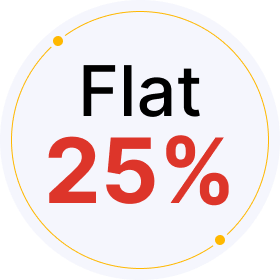
- Toshendra Kumar Sharma
- February 26, 2018
Blockchain Technology has already made its way into the financial industry with cryptocurrencies like Bitcoin and Ethereum receiving valuations in the billions of dollars range. But finance is just the beginning of what this technology is capable of. Supply chain management, land title deeds, and the Internet of Things are just some of its many potential use cases. Artificial Intelligence, another technology which is in its nascent state can also benefit a great deal from blockchain technology. Let’s take a more in-depth look at how these two technologies can help each other and projects that are working to make that symbiosis a reality.
The Basics of Artificial Intelligence
Artificial Intelligence or AI is a collective term for all software that makes it possible for machines to make decisions more autonomously and efficiently. Some examples of AI include speech pattern recognition, self-driving cars, and decision trees. Artificial Intelligence uses enormous amounts of data to glean knowledge of how decisions are made to learn to replicate those modes of deciding. Essentially, AI aims to create machines that can operate without human supervision.
The Benefits of Blockchains
While Artificial Intelligence is primarily concerned with understanding the underlying patterns in Big Data to make autonomous machines, Blockchains are concerned with accurate records management, authentication, and security. The first benefit of Blockchain for AI is data sharing. Since AI is involved with vast amounts of data, Blockchains can help securely transport that information over the internet. This can save a lot of processing time in between the points where data is generated and where it is analyzed. The autonomous nature of self-operating devices requires a very high degree of security for inter-device communication, another problem that Blockchains can solve. Blockchains can also help make sure that the data that AI models rely on is authentic. Machine learning models work on the principle that “Garbage In, Garbage Out.” This means that if the data used to develop the model is compromised, the result of that model cannot be beneficial either.
Applications of AI and Blockchains
Open Market for Data – AI depends significantly on pooling together data from a wide range of sources and running various models on it. Large corporations like Facebook, Google, and Microsoft, have access to vast quantities of data; however, this data is not accessible to the market. Blockchains deal with the issue by creating a peer to peer connections. This way, every user on the network has access to the data which can take AI forward.
Large Scale Data Management – Blockchains at their core are merely distributed databases that exist on millions of devices across the world. This helps keep multiple copies of the data to prevent valuable data from ever being lost. Even in the case of natural calamities, there is going to be enough copies of the data to keep the underlying system intact.
Blockchain Startups that Use Artificial Intelligence
Augur – Augur is a decentralized prediction market platform that runs on the Ethereum Blockchain. Augur uses crowd wisdom to create questions and buy or sell shares based on the outcome of events. It has applications in various industries, like sports, politics, economy, etc. Its basis of predictive modeling relies on polling averages. Users on the Augur platform can create questions and vote.
Cindicator – According to their website, Cindicator uses hybrid intelligence tools and platforms for efficient asset management. Cindicator claims that existing market analysis instruments are unable to incorporate “acceleration of information.” They allow users to submit predictions that will become the basis of investment decisions. They plan to integrate AI alongside crowd wisdom to come up with accurate predictions related to various markets. Their platform depends on three classes of users. (a) Analysts, who will submit predictions based on their research. (b) Data scientists, who will analyze projections and build models based on them. (c) Traders or investors, who will make market decisions based on the information that they will provide.
NumerAI – Their philosophy is that cooperation rather than competition in finance can lead to superior investment returns. NumerAI takes a unique approach to predictions where first, it gets analysts to develop models for prediction. Then, NumerAI synthesizes these models into a metamodel. This allows the final model to gain insights from every model that went into its making. Professional data scientists become a part of the ecosystem by competing in tournaments. This is an exciting approach that can lead to a discovery of suitable models.


































































 Guides
Guides News
News Blockchain
Blockchain Cryptocurrency
& Digital Assets
Cryptocurrency
& Digital Assets Web3
Web3 Metaverse & NFTs
Metaverse & NFTs
